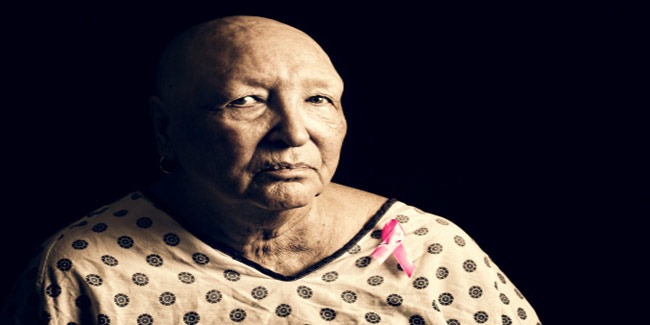
Cancer is a class of diseases characterized by uncontrolled cell growth. There are more than 100 different types of cancer which are classified by the type of cell that is affected initially. When the damaged cells divide uncontrollably to form masses of tissue called tumor, the body gets some damage which may get even worse. A cancerous cell moves throughout the body using the blood or lymph systems, destroying other healthy tissues.

Tumors that show limited growth and stay at a place are considered benign. However it can usually grow and interfere with other systems of the body. Cancer can affect the nervous, digestive, and circulatory systems, and also release hormones that can alter normal body function.
There are several factors that can affect the risk of developing a cancer. Age is one such factor that has been closely connected to the risk for cancer.
The Age Factor
Age may not have anything directly to do with cancer, however aging brings along numerous changes which may have a close relationship with cancer. Aging brings higher risk of diseases and disability which may interfere with cancer treatment and recovery.
With age the natural immune response decreases which in turn increases the risk of several diseases. Immune response also plays a vital role in delaying cancer and even in cancer treatments. Older people usually don't have the luxury of an effective immune response which also increases the risk of cancer. Age also reduce the ability to accomplish daily activities like walking, cooking and even the ability to look after self.
Independence
The biggest concerns for older cancer patients are being able to take care of themselves and have control on their health and decisions.
Older patients may dislike treatment for interfering with their ability to cook, eat, wash, walk and bathe independently. Having to rely on others to care for them can be too overwhelming. Being isolated may also cause more depression and anxiety in older adults which may interfere with treatment. They may also have difficulty coping with problems associated with cancer treatment.
Co-Morbid Conditions
Serious co-existing or co-morbid conditions that often accompany the aging process such as lung disease, diabetes, high blood pressure, heart disease, kidney disease, and arthritis, also make cancer a bigger problem for older patients as compared to younger patients. These co-existing conditions influence the treatment selection, type and severity of treatment side effects in the older patients making it more difficult to stop the tumor growth.

Physical Limitations
With age the ability to perform all physical activities independently decreases gradually making it less likely for older adults to get early cancer care and treatment without help. Lack of physical activities also affects the overall health of older patients which increases the risk for several health problems including cancer.
Under Treatment
Although cancer is more common in older people, however they usually receive less frequent screening tests as compared to younger adults. The delay in detection allows cancer to grow into more severe stage.
Even when cancer is detected in older patients, they often receive milder treatments or no treatment at all in some cases.
Image Courtesy : Getty Images
Read more articles on Understand Cancer
How we keep this article up to date:
We work with experts and keep a close eye on the latest in health and wellness. Whenever there is a new research or helpful information, we update our articles with accurate and useful advice.
Current Version